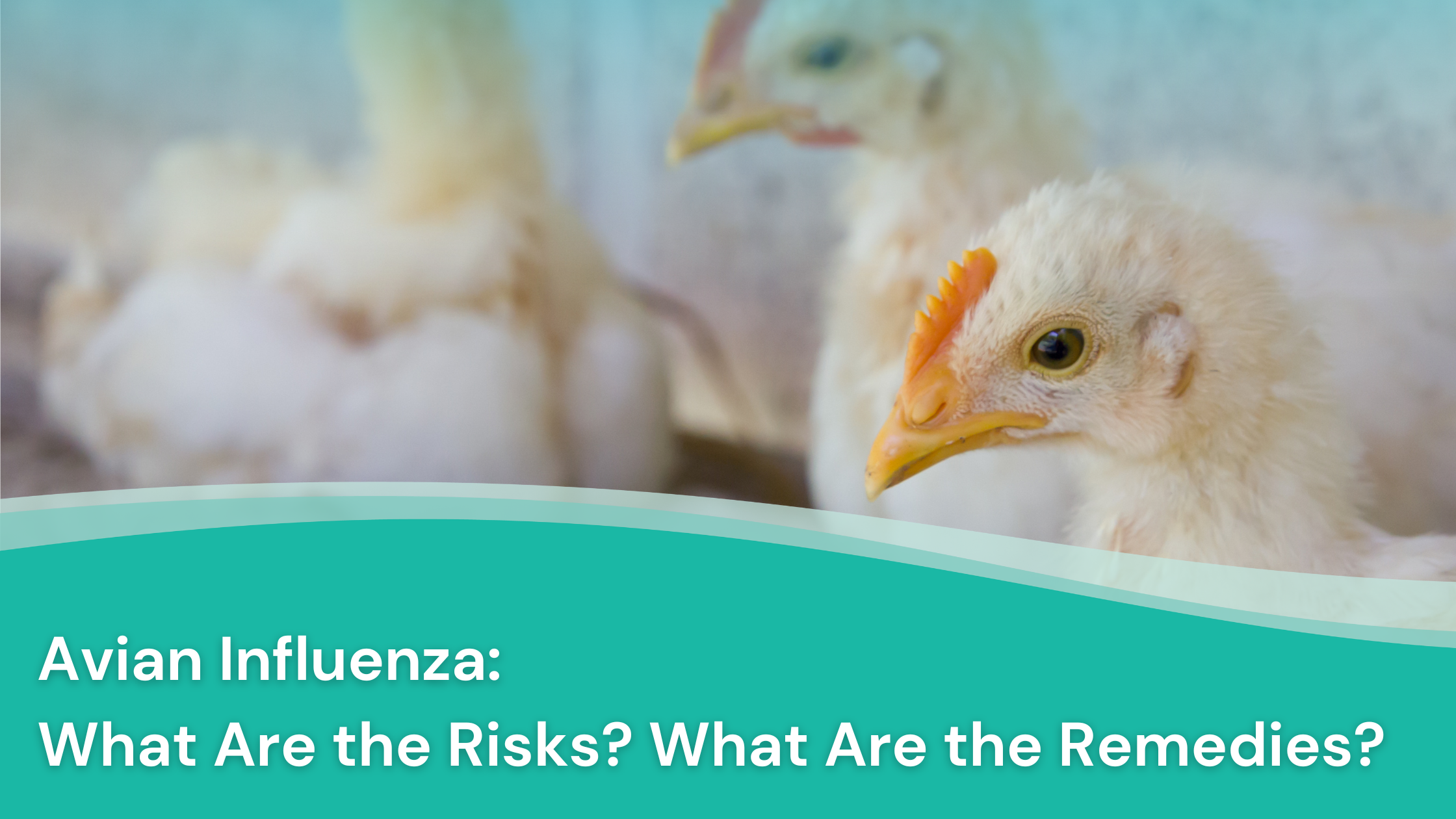When Disaster Strikes, It’s Not Hunger or Thirst That Takes the First Lives In every disaster zone, from hurricanes in the Caribbean to war zones in Ukraine, the pattern is the same. People worry about food and water, but it’s infection that kills first. A small wound...
Avian Influenza (Bird Flu): It’s Resurgence, Risks, and Treatment

They call it the bird flu, but it also affects other animals, and people.
.

Making an Unwelcome Comeback
Back in the mid to late 2000’s the bird flu was on a devastating path around the world – killing 53% of humans who contracted it. States of emergency were declared, experimental vaccines developed, and antiviral drugs (such as Oseltamivir) were back-stocked. Since then it was pretty much relegated to wild bird populations, until recently.
The bird flu has been around for decades and is a constant health risk to wild bird populations, but it normally stays there, amongst wild birds. In more recent years however, it has infiltrated other birds, including commercial poultry animals, and beyond.
The Current Situation:
In recent months, the world has been grappling with a concerning resurgence of the avian influenza, commonly known as bird flu. This highly pathogenic influenza results in a viral infection, primarily affecting birds, but has raised alarms due to its potential to spread to other birds and mammals, including humans.
The H5N1 strain has been affecting wild birds in the United States since about 1996, but lately has also spread to poultry farms, leading to the culling of millions of birds to prevent further spread. But this has only been partially successful.
In late March 2024, the virus was detected in dairy cattle in Texas and Kansas, marking the first time it was found in mammals in the U.S. this year.
And there have been two confirmed human cases in the U.S. so far this year.
The current outbreak of bird flu has been primarily attributed to the H5N1 and the more recent H5N8 strains of the virus. These strains are highly pathogenic, meaning they can cause severe illness and death in birds. The virus is primarily spread through contact with infected birds or their droppings, though it can also be transmitted through contaminated surfaces or objects. It was exposure due to close proximity to infected animals that caused the two human cases. One case involved a worker at a farm with infected cows, and the other case involved a worker at a poultry facility.
Risks to Humans:
While H5N1 can infect humans through close contact with infected birds or mammals, the current risk to the general public is considered relatively low. The CDC’s avian influenza risk information changes, and gets updated regularly though. However it is a non-zero risk. The two human cases in the U.S. this year involved direct contact with infected animals, but there is currently no evidence of sustained human-to-human transmission.
When contracted, the H5N1 strain in particular, has been known to cause severe respiratory illness in humans, with a potential for prolonged health complications if not treated effectively.
Another strain of concern, H5N8, has also shown the ability to infect humans. While human cases of H5N8 have been limited so far, the potential for the virus to mutate and become more transmissible among humans is a significant concern.
Genetic changes in the virus have enabled the bird flu to spread from wild birds to poultry animals and other mammals, including livestock and humans. And while it doesn’t pose an immediate risk to the general public, the time to prepare yourself for it is before it gets worse – not after.
What can we do?

While we can’t avoid wild birds or poultry altogether, here are some steps we can take to reduce the risks of infection:
- Avoid Contact with Sick or Dead Birds: Do not handle sick or dead birds, including poultry. If you must handle them, use gloves and other protective gear, and wash your hands thoroughly afterward.
- Practice Good Hygiene: Wash your hands frequently with soap and water, especially after handling birds or visiting places where birds are present. Avoid touching your face, especially your eyes, nose, and mouth, with unwashed hands.
- Cook Poultry Thoroughly: Ensure that poultry, including eggs, is cooked thoroughly before consumption. Cooking at temperatures of 165°F (74°C) kills the bird flu virus.
- Avoid Contaminated Surfaces: Avoid contact with surfaces or objects that may be contaminated with bird droppings or secretions.
- Limit Exposure to Live Birds: Minimize visits to live bird markets or farms where poultry are raised, especially in areas experiencing bird flu outbreaks.
- Stay Informed: Stay updated on the latest developments regarding bird flu outbreaks in your area and follow the advice of health authorities.
- Be equipped to treat an infection if it occurs. Keep an antiviral medication on hand.
Antivirals treat Avian Influenza
Antiviral medications, such as Oseltamivir, remain the preferred intervention method for most influenzas including the bird flu. Stopping a viral infection as soon as possible yields the best outcome for patients, and having a medication kit that includes an antiviral is key to being able to intervene quickly in an infection. Early treatment means you’ll feel better faster, and have less disruption to your daily life. It also means you’ll reduce the likelihood of developing further complications.
Our Jase Case – already full of life saving medications – is also completely customizable, and can be configured to include the antiviral Oseltamivir 75 mg (10 pack) so you have a weapon to wield against the bird flu (and other influenzas).
Customize your Jase Case today, for some certainty in an uncertain world.
Lifesaving Medications
Recent Posts
Keeping you informed and safe.
Medical Readiness: What Really Kills First
Exploring Dr. William Makis’ Hybrid Orthomolecular Cancer Protocol: Focus on Ivermectin and Mebendazole/Fenbendazole
Exploring Dr. William Makis’ Hybrid Orthomolecular Cancer Protocol: Focus on Ivermectin and Mebendazole/Fenbendazole *Disclaimer: This article is for educational purposes and does not constitute medical advice. Always seek professional guidance.* In the evolving...
Be Prepared for Life’s Unexpected Moments
3 Reasons EVERYONE should have emergency medications avaiable. It's all about access—access to medications and care when you need it most. And when things happen outside of your control that access can disappear.Below are 3 examples of how easily this access can be...
Youth Preparedness: Teaching, Building, and Coping with Disasters
Educating and preparing your children ahead of time means fewer surprises in the event of an emergency.Growing Up Prepared: Empowering Youth in Disaster Preparedness As we observe National Preparedness Month, it's crucial to remember that disasters can strike at any...







